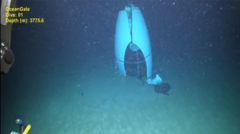Ghosts of early 19th-Century British Luddites appear to have taken over America’s big-labor movement. Their most recent protests against industrial modernization are being waged in the name of higher pay and job protection, but the unwitting result, now as then, is both economic destruction and the demolition of jobs.
The International Longshoreman’s Association (ILA) is a ghastly example. Over the last few weeks, the ILA threatened to hold the nation’s economy hostage to a strike promising to indefinitely shut down major American ports. The ILA’s demands are outlandish, far beyond what any thinking person would consider reasonable, including a 77 percent wage increase, and a ban on automation — of any kind — at American ports.
This came after ILA president Harrold Daggett turned down an offer of a 50 percent pay increase escalating over six years. Most American families would consider a 50 percent bigger paycheck a financial blessing akin to winning the lottery. It’s not big enough for Daggett, however, who represents 47,000 dockworkers and drives, famously as it is ironically, a British-made, state-of-the-art Bentley, a lavishly priced luxury convertible.
Atop the steep pay increase, Daggett, conjuring spirits of his Luddite forebearers, insisted on contract provisions with “absolute airtight language that there will be no automation or semi-automation” at U.S. ports. In contrast, major ports worldwide are rapidly automating and harnessing technology to more cheaply and efficiently deliver increased volumes of goods to market.
U.S. ports already lag foreign ones in terms of performance and cost. Eschewing modern computerized technology is more than just a wrench thrown into the moral works of American capitalism, it takes a massive sledgehammer to the livelihoods of dockworkers. Coupling that with enormous wage-hike demands — for no concurrent increase in productivity — can only undermine American consumers.
Even if the union cares nothing about that — Daggett gives no indication it does — it would be far better for workers to join the 21st Century, embrace technology and lead the world in efficiency, productivity, economic might and workplace safety, but especially in job security and higher wages.
For now, the ILA has paused its strike, accepted a tentative agreement for an outsized 62 percent wage hike pending details to be hammered out, subject to Daggett’s satisfaction, by mid-January. In delaying settling the crux of the ILA’s demands until after the national election, Daggett has made clear the ILA union has hardly abandoned its quest to disable the economy over his Luddite demands. Indeed, the union has signaled it is prepared to resume the strike if its anti-automation demands go unmet.
There can be no doubt the ILA’s negotiation pause is entirely political. The union does not want its threats of economic carnage to interfere with the November election. Nor does it want public opinion to turn against dockworkers had the strike extended into the Christmas buying season.
But while the ILA has been hogging recent headlines, it is hardly the only example of big-labor malfeasance. The United Steelworkers (USW) union and its president David McCall have nearly outdone the ILA in opposing Nippon Steel’s acquisition of U.S. Steel.
Not unlike the American shipping industry and its ports, the domestic steel industry is on the ropes. Steelworkers are losing jobs with more future losses predicted. Nippon Steel wants to invest in American steel. It would help.
In agreeing to buy U.S. Steel, Nippon has consented to meeting every reasonable demand put forward by the USW union plus a few immoderate ones. For example, Nippon has agreed to honor all collective bargaining agreements; it has agreed that the majority of its board of directors and senior leadership will be Americans; and, it has agreed to keep U.S. Steel’s company name and its headquarters in Pittsburgh. As part of the bargain, Nippon will also inject $2.7 billion into modernizing technologies at U.S. Steel’s American plants. All in all, it’s a pretty good deal for steel workers, consumers and the American economy, especially in the absence of any other offer coming remotely close.
For union bosses cut from the same Luddite cloth, it’s not good enough. Though Nippon’s is the only deal on the table and the only promise of sustained steelworker jobs, those steering big-labor negotiation are intent on running the agreement aground. Without this deal, U.S. Steel will likely be forced to close its Mon Valley Works, other facilities like it, and move its headquarters away from Pittsburgh. Subsequently, most, if not all, union jobs would vaporize.
Why would any putatively pro-worker union oppose saving its own industry and jobs it supports? Just as an ILA strike will make the cost of imported goods surge, so too will USW’s 1800s-style intransigence cause the price of American steel to skyrocket ultimately along with everything Americans build with it.
Big-labor bosses have become impetuous road-ragers, oldfangled Luddites who drive Bentleys with reckless abandon. Their real quest seems to be amassing political horsepower and clinging tightly to a nostalgic and obsolete past, doing so at any expense to the country and its union membership.
If union bosses do want to demonstrate they care about workers, their neighborhoods, the competitiveness of their industries and their customers, they would do well to retool their retrograde, destructive tactics. For dues-paying members, they would fare even better to reevaluate the vision and fitness of those they put behind the wheel.
Bob Schaffer served in the U.S. House of Representatives from Colorado from 1997-2003, where he served on the Committee on Education and the Workforce. He is now headmaster of a k-12 charter-public school in Fort Collins, Colo.















 English (US) ·
English (US) ·